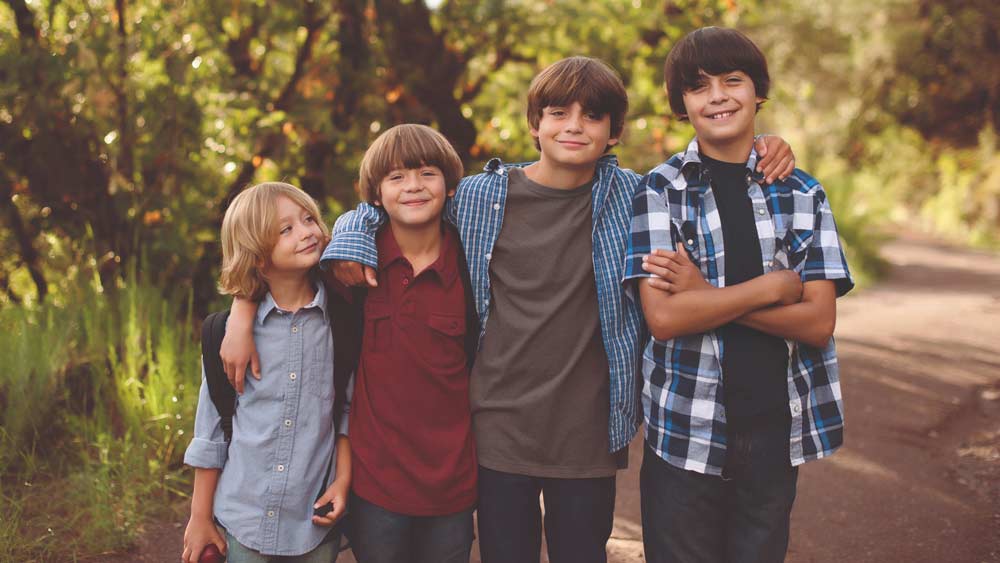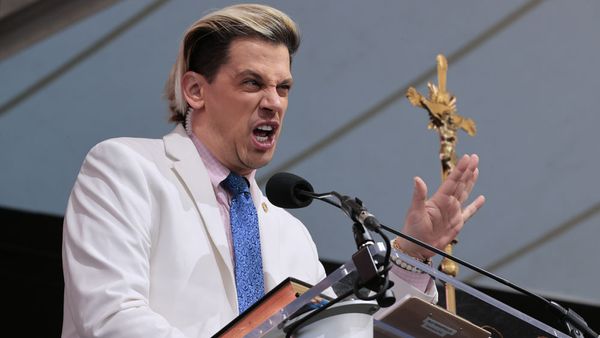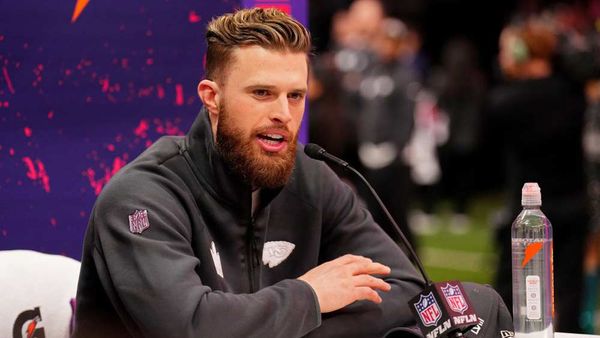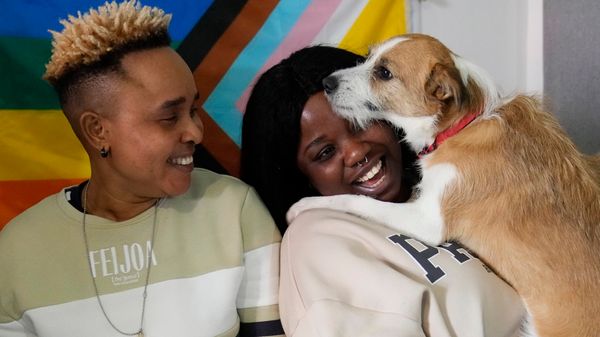July 24, 2012
New York Episcopal Church OKs Same-Sex Marriage Rites
Daniel Scheffler READ TIME: 5 MIN.
Historically, the Episcopal Church has embraced the LGBT community. They accept LGBT members into the congregation, and enthusiastically ride atop decorated floats at New York City's annual Pride festival. They are also advocates for marriage equality, and recently gave an official thumbs-up to blessing same-sex unions -- a decision that not all congregations have embraced. And in a very recent decision, the Bishop of the New York Diocese just gave clergy permission to perform full marriage rites for same-sex couples in the church.
"If a cleric of this diocese feels moved by conviction and pastoral need to respond in the affirmative to a request to perform a same-sex marriage, he or she is free to do so, on or after September 1, 2012," said Bishop Mark Sisk.
Sisk was referring to the fact that in the discussion of the same-sex blessing rite recently approved at the church's General Convention, the framers of that rite made it clear that Bishops may provide generous pastoral response to meet the parishioners spiritual needs, and that that response might include priests officiating at same-sex marriages.
Sisk said that he felt this decision, which otherwise might seem odd in light of the fact that the recent General Convention just passed a resolution approving a blessing rite but not a marriage rite, was of crucial importance.
"Clergy may now sign marriage licenses and officiate at the full civil and sacramental marriages of same sex couples," said Bishop Andrew Dietsche, Coadjutor of the Diocese, who will take over from Bishop Sisk as full Bishop in February 2013.
This growing acceptance of the LGBT community within the Episcopal Church has been an ongoing process for decades. Although there have always been gay and lesbian members in all denominations, it is in the 1970s that LGBT members began to ask for acceptance to be openly homosexual within their congregation.
This comes as just another measure in the church's acceptance of the LGBT community -- the same denomination that in 2003 elected a non-celibate, openly gay bishop, Gene Robinson. The initial acceptance of this election delivered some disgruntled commentary from other churches around the world. But retired South African Archbishop Desmond Tutu's comment in the general media that he did not see what "all the fuss" was about silenced the majority of it.
Bishop Robinson, voted number seven in Out Magazine's annual "Power 50" list of influential gay men and women, recently announced his retirement, opening discussions of whether another gay bishop will succeed him.
"Same-sex blessings have been carried out within the Diocese of New York, but not in all others by any means, for many years," said Episcopal New Yorker Editor Nicholas Richardson, about the rite.
Cudney emphasized that no one will be forced to perform same-sex blessings, noting that the blessing is a "provisional rite," authorized for use during the next three years, and to be revisited again at the 2015 General Convention.
"It allows for a fuller participation of faithful same-sex couples in the sacramental life of the church. Many dioceses will allow its use; some will not," said Cudney. "We understand that there is a broad spectrum of belief on matters of sexuality, and this resolution takes that into account and makes provision for it."
Rumors about the New York Dioceses impending decision to extend these blessings to official same-sex wedding ceremonies was what some believe spurred consternation about the blessing among dioceses in states where same-sex marriage is not legal.
The optional status of the church-wide blessings did not make the decision any more appealing to some, who viewed it as a slippery slope to approving church-wide support of same-sex marriage rites, including the conservative South Carolina diocese, which found all but two members walking out of the General Convention in protest.
More recently, an Episcopal bishop in Alabama refused to allow priests in his diocese to bless same-sex unions, despite having worked on the committee that developed the rite, and voting in favor of such blessings at the national level.
Bishop Kee Sloan of the Episcopal Diocese of Alabama said he will not allow the blessings at his congregation, believing the issue is too divisive for Alabama.
"Theology is an ongoing revelation," Sloan told The Birmingham News. "It's influenced by context. There are parts of the country that are more conservative and traditional, and there are parts of the country that are more liberal. In Alabama, it would be divisive within the Episcopal Church. We are deeply conflicted about this. I'd like for us to work through and pray about it."
He did not permanently rule out such blessings, saying they may eventually be allowed. "I don't have a timetable in mind," he said. "I foresee that that's a possibility."
Others in Sloan's diocese are opposed to the recognition of same-sex couples. For example, The Rev. Frank F. Limehouse III, dean of the 3,400-member Cathedral Church of the Advent in Birmingham, said on his church's website that same-sex relationship run counter to his understanding of biblical teachings.
"We cannot bless any sexual activity outside of a marriage between one man and one woman," Limehouse said. "The Bible is clear about this. If anyone who declares the Bible teaches otherwise, then I wouldn't doubt his or her sincerity, but I would have to question their training in biblical interpretation."
According to Cudney and Richardson, other dioceses also voted against the same-sex blessings resolution, but in the end, it passed both houses (the Bishops and the Deputies) by large margins.
The decision found a lot of support online, where the story told on the Episcopal New York Facebook page is one of joy. MargaretAnn Niven wrote, "Thank God for the Episcopalians," and Hunter Thompson Carter commented that he had, "A lot of pride in our Episcopal Church and its leadership, and the many parishes (ours included!) who marched in the Pride Parade. When we say God loves everyone, we mean it."
Nanci L. Blaisdell also posted on the church's Facebook page that she believed the support for same-sex marriage will strengthen the church. And Victor R. Stanwich was thrilled that the bishops were preaching love, not hate.
With many "likes" and mostly warm support on their social media channel, many members of the Episcopal Church saw the decision as fulfilling their baptismal covenant promise to "respect the dignity of every human being."
The Episcopal Church is on most certainly on trend when it comes to support of same-sex marriage. As reported in the Seattle Times in May, the city's Muslim community was lending support for reassessing the same-sex marriage laws of Washington State. And in June, the Washington Post reported that conservative Jews have also given a formal approval to same-sex marriage ceremonies.
Based between New York and Cape Town, Daniel Scheffler writes about socio political and travel matters and is working on a memoir. Follow him on Twitter @danielscheffler.





